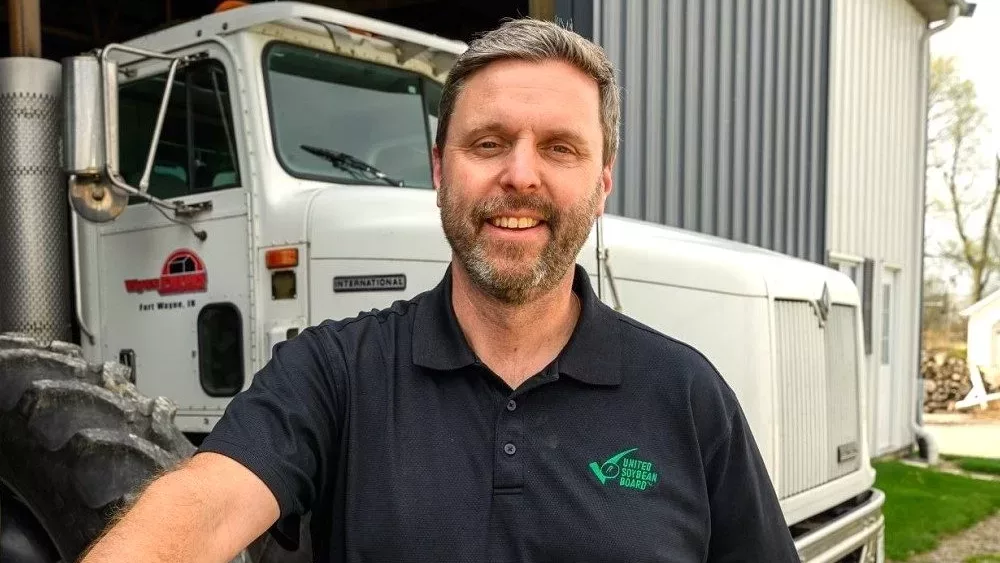The Michigan Department of Agriculture and Rural Development’s (MDARD) Michigan Agriculture Environmental Assurance Program (MAEAP) is recognizing 31 farms for implementing appropriate pollution prevention practices. The program assists farmers to comply with state and federal environmental regulations and with Right to Farm practices. Technical assistance was provided by local Conservation Districts.
The Michigan Agriculture Environmental Assurance Program recognized:
- Allan K Shaw Inc., of Marlette, as a verified farm in Cropping and Farmstead Systems
- Battel Sugar Bush, of Cass City, as a verified farm in Farmstead, Forest, Wetlands, Habitat, and Livestock Systems
- Birchmeier Brothers, of New Lothrup, as a verified farm in Cropping, Farmstead, and Forest, Wetlands, Habitat Systems
- Brossman’s Farm, of Vandalia, as a verified farm in Cropping and Farmstead Systems
- BS Farms, of Yale, as a verified farm in Cropping System
- C and K Hemlock Lake Farm, of Reading, as a verified farm in Farmstead and Forest, Wetlands, Habitat Systems
- Calf-eteria, LLC (C & N Farm), of Lakeview, as a verified farm in Cropping, Farmstead, and Livestock Systems
- Cherry Creek Cellars, of Brooklyn, as a verified farm in Cropping and Farmstead Systems
- Denny T. Hall Farms, of Belding, as a verified farm in Cropping, Farmstead, and Livestock Systems
- DNR – Pentwater State Game Area, of Pentwater, as a verified farm in Forest, Wetlands, Habitat System
- Dwight Bartle Farm, of Brown City, as a verified farm in Cropping System
- Fairview Berries, of Fairview, as a verified farm in Cropping, Farmstead, and Livestock Systems
- Firefly Ridge, of Laingsburg, as a verified farm in Cropping, Farmstead, and Livestock Systems
- Fox and Grapes Vineyard, of Suttons Bay, as a verified farm in Cropping and Farmstead Systems
- Freeman Farms, of Corunna, as a verified farm in Cropping and Farmstead Systems
- Jeff Steinkraus Forest, of Marcellus, as a verified farm in Forest, Wetlands, Habitat System
- Ken Landsburg Farm, of Sandusky, as a verified farm in Cropping and Farmstead Systems
- Kent Schriber Farm, of Caro, as a verified farm in Farmstead System
- Knochel Farms, of Pinconning, as a verified farm in Cropping and Farmstead Systems
- Kondel Farms, L.L.C., of Owosso, as a verified farm in Cropping, Farmstead, and Livestock Systems
- Krohn Acres, LLC (Previously Krohn Seed Farm), of Elkton, as a verified farm in Cropping and Farmstead Systems
- L & M Farms, of Fremont, as a verified farm in Cropping and Farmstead Systems
- Lance McMunn Farm, of Jasper, as a verified farm in Cropping and Livestock Systems
- Lange & Heiden Farm, of Maybee, as a verified farm in Cropping System
- Long-Haven Farms, Inc., of Clayton, as a verified farm in Cropping System
- Meylan Farms, Inc., of Auburn, as a verified farm in Cropping System
- MSU – Saginaw Valley Research and Extension Center, of Frankenmuth, as a verified farm in Cropping and Farmstead Systems
- O’Hair Farms – South, of Croswell, as a verified farm in Farmstead and Livestock Systems
- O’Hair Farms, Inc., of Croswell, as a verified farm in Cropping System
- Riverside Apple Farm, of Sturgis, as a verified farm in Cropping, Farmstead, and Livestock Systems
- Tait Farms Incorporated, of Caseville, as a verified farm in Cropping System
“Farmers across the state of Michigan understand how fortunate we are to be surrounded by fertile lands and abundant fresh water, and they are committed to protecting these amazing resources,” said MDARD Director Gary McDowell. “Participation in the program increases year after year, and it has been used as a model by many other states. By earning MAEAP verification and putting that sign out front, they are letting their neighbors know that they are excellent stewards of their land so that it can be sustainable for future generations.”
MAEAP is a collaborative effort of farmers, commodity organizations, universities, conservation districts, conservation and environmental groups and state and federal agencies. Michigan conservation districts house technicians that provide technical assistance to assist farmers as they move through the MAEAP process toward verification. An average of 5,000 Michigan farmers attend educational programs annually, 10,000 Michigan farms have started the verification process and over 5,000 verifications have taken place to date.
To become MAEAP verified, farmers must complete three comprehensive steps which include attending an educational seminar, conducting a thorough on-farm risk assessment, and developing and implementing an action plan addressing potential environmental risk. MDARD conducts an on‑farm inspection to verify program requirements related to applicable state and federal environmental regulations, Michigan Right to Farm guidelines, and adherence to an action plan. When completed, the producer receives a certificate of environmental assurance. To remain a MAEAP verified farm, inspections must be conducted every five years and action steps must be followed.
MAEAP is a multi-year program allowing producers to meet personal objectives, while best managing both time and resources. The program encompasses four systems designed to help producers evaluate the environmental risks of their operation. Each system – Livestock, Farmstead, Cropping, and Forest, Wetlands and Habitat – examines a different aspect of a farm, as each has a different environmental impact. By participating in all four systems, producers can comprehensively evaluate their entire farming operation for potential environmental risks.
For more information, visit the MAEAP website at https://www.maeap.org or contact Joe Kelpinski, MDARD’s MAEAP Program Manager, at (517)284-5608.





